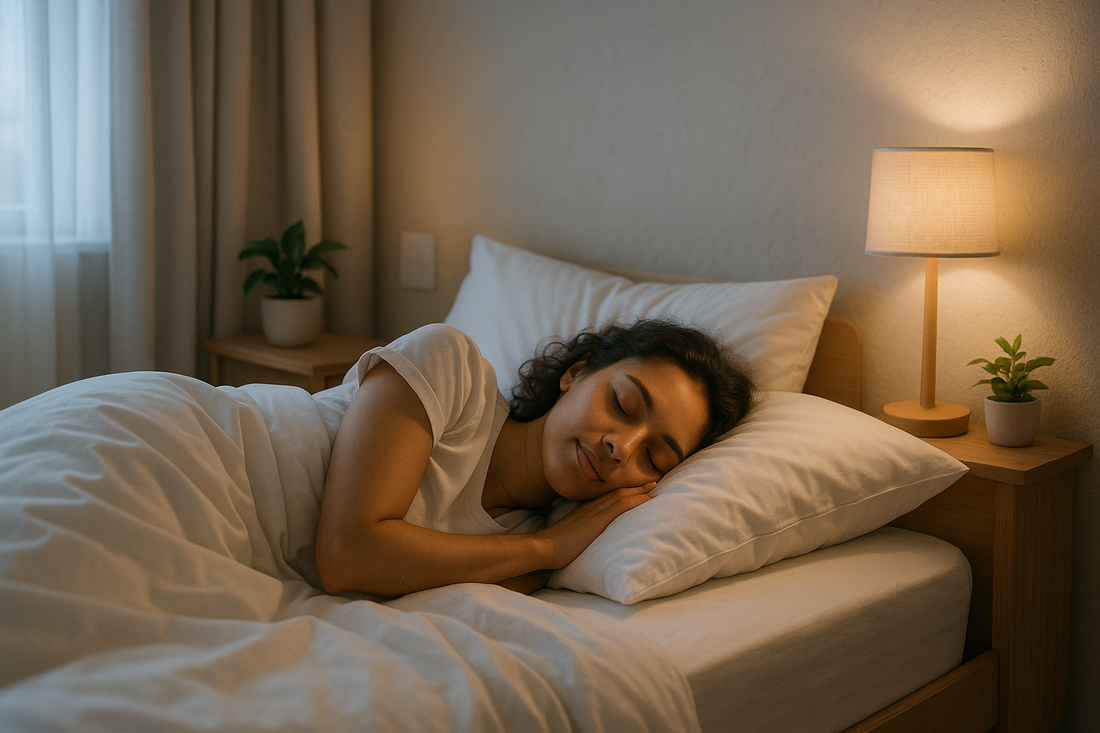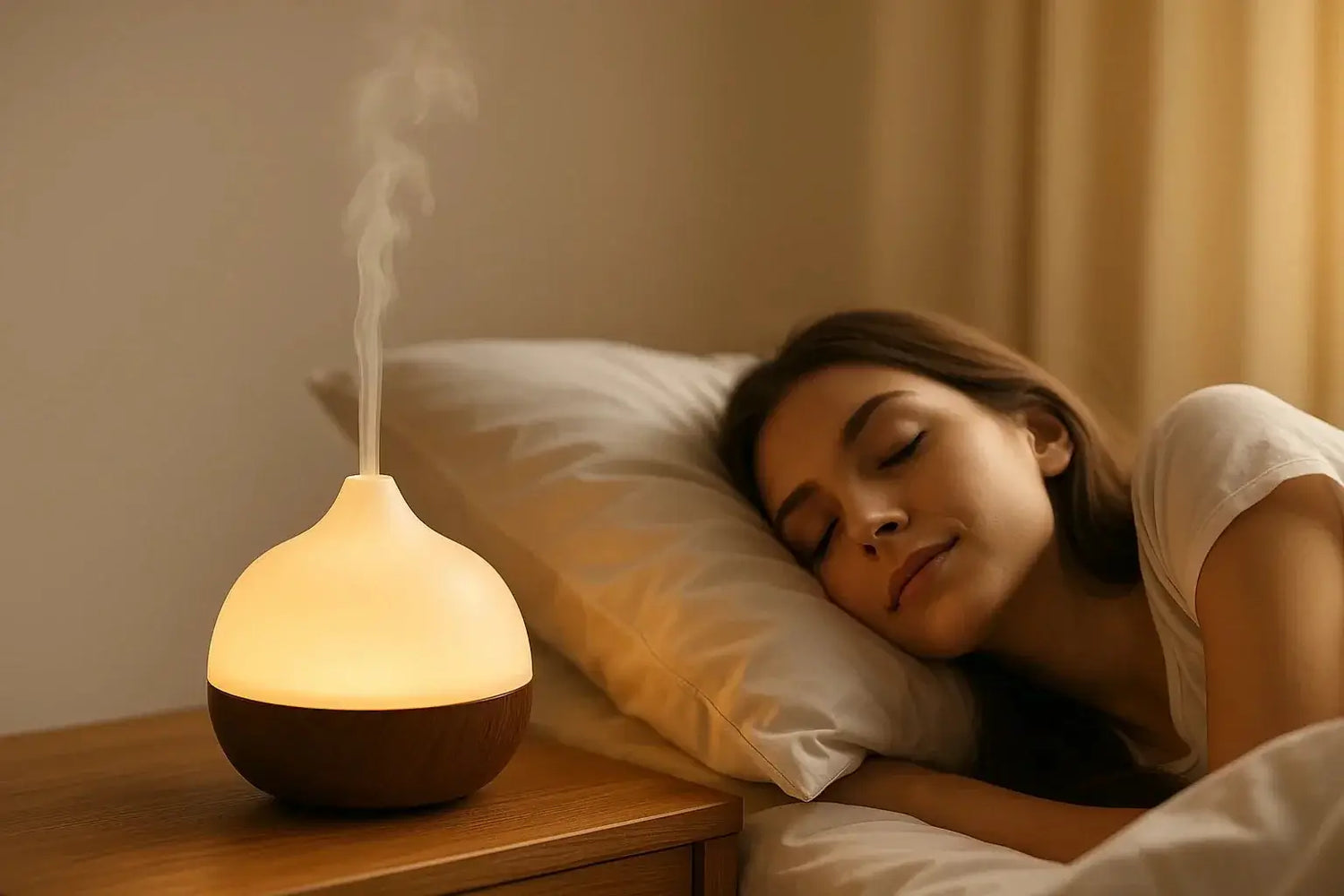
How to Achieve Sound Sleep: Complete Guide 2025
Share
Welcome to your comprehensive guide for achieving sound sleep in 2025! In an age of constant notifications, endless work, and a fast-paced lifestyle, getting quality sleep often seems like an elusive dream. But don’t worry! We’re here to unlock the secrets of sound sleep, explore its myriad benefits, and help you create the perfect sleeping environment. So, settle in, get cozy, and let's embark on this journey to better sleep together!
What is Sound Sleep?
When we refer to sound sleep, we’re talking about the deep, restorative, and uninterrupted sleep that revitalizes your body and mind. It's that blissful state where you drift into slumber effortlessly, stay asleep through the night, and awaken feeling refreshed and ready to take on the day. But sound sleep isn’t just about the hours you spend in bed; it’s about the quality of that sleep. The importance of sound sleep is monumental—it's vital for mental clarity, emotional stability, and overall well-being.
The Benefits of Sound Sleep
Let’s dive into some incredible benefits of achieving sound sleep. According to the National Sleep Foundation, adults aged 18-64 should aim for 7-9 hours of sleep each night. Why the emphasis? Because quality sleep comes with a plethora of advantages:
- Enhanced Mood: Ever notice how you're cranky after a night of poor sleep? Good sleep stabilizes your mood and helps you handle stress more effectively.
- Improved Cognitive Function: Sleep is crucial for brain health. It plays a role in memory consolidation, problem-solving abilities, and creativity.
- Stronger Immune System: Quality sleep strengthens your immune defenses, making you less susceptible to illness.
- A Healthy Weight: Lack of sleep can lead to cravings and increased appetite, promoting weight gain. Sleep helps regulate hormones that affect hunger.
- Chronic Disease Prevention: Consistent sound sleep can lower your risk of conditions like heart disease, diabetes, and hypertension.
As you can see, prioritizing sound sleep is incredibly beneficial for both your physical health and mental well-being!
How to Achieve Sound Sleep
Now that we know what sound sleep is and the advantages it brings, let’s delve into practical steps on how you can achieve it. From creating a peaceful environment to incorporating beneficial products, we’ve got you covered.
1. Environment Optimization
Your sleeping environment is critical to achieving sound sleep. Here are the essential factors to consider:
Darkness
Light exposure can significantly disrupt your sleep cycle. Melatonin, the sleep hormone, is produced in darkness, so it’s essential to create an environment that fosters it. Consider investing in a quality sleep mask like the 3D Sleep Mask from QuietAura. This product is designed to block out light entirely, allowing for the ultimate blackout experience and helping you slip into a deep sleep.
Temperature
Did you know that the ideal bedroom temperature for optimal sleep is around 60-67 degrees Fahrenheit (15-19 degrees Celsius)? If your room is too hot or too cold, it can disrupt your ability to fall asleep. Using a fan in warm months, closing curtains during hot days, or using a heater when it’s chilly can make a big difference. You might also want to invest in quality bedding that regulates temperature.
Humidity
The humidity level in your bedroom can greatly affect your comfort level while sleeping. Dry air can lead to issues like dry skin and respiratory discomfort, while overly humid air can create a sticky environment. A humidifier can be a great investment for maintaining an ideal humidity level in your bedroom. The 3L Ultrasonic Humidifier from QuietAura is perfect for this purpose, ensuring that your air is just right for a restful night.
Sound
Noise can be one of the biggest barriers to sound sleep. If you live in a bustling city or a noisy neighborhood, consider using a white noise machine or sound diffuser to help mask disruptive sounds. The Sleep Diffuser from QuietAura goes beyond simply diffusing pleasant scents; it can also produce calming sounds that promote relaxation and sleep.
2. Sleep Hygiene Tips
Practicing good sleep hygiene is essential for achieving sound sleep. Here are some actionable do’s and don’ts for your nightly routine:
- Do: Establish a consistent sleep schedule. Try to go to bed and wake up at the same time every day, even on weekends. This consistency helps regulate your body's internal clock.
- Do: Create a calming bedtime routine. Engaging in relaxing activities prior to sleep, such as reading, meditating, or taking a warm bath, can help signal to your body that it’s time to wind down.
- Don’t: Engage in stimulating activities or use screens right before bed. The blue light emitted by phones, tablets, and computers can interfere with melatonin production, making it harder for you to fall asleep.
- Don’t: Consume caffeine or heavy meals close to bedtime. Try to avoid caffeine at least 6 hours before sleep, and opt for lighter snacks if you need to eat before bed.
3. Create a Comforting Atmosphere
Your bedroom should be a sanctuary for sleep—a place where you feel relaxed and comfortable. A calming, aesthetically pleasing environment can work wonders for achieving sound sleep. Consider adding soft lighting, soothing colors, and enriching textures to your space. For a touch of magic, incorporate a galaxy projector. The Galaxy Projector from QuietAura transforms your sleeping space into a tranquil night sky, creating a serene atmosphere that can enhance relaxation and sleep quality.
Products that Promote Sound Sleep
Here are some must-have products from QuietAura that can support your journey to achieving sound sleep:
- 3D Sleep Mask - Block out light and distractions with this comfortable mask, perfect for achieving total darkness.
- 3L Ultrasonic Humidifier - Maintain optimal humidity in your bedroom for maximum comfort and visibility.
- Sleep Diffuser - Fill your space with calming scents while creating a soothing sound environment to foster relaxation.
- Galaxy Projector - Create a stunning ambiance that promotes tranquility and comfort.
And the icing on the cake? We accept PayPal for secure checkout, ensuring you shop with confidence and buyer protection!
Statistics About Sleep Quality
Understanding sleep quality can further motivate you to make changes. Here are some eye-opening statistics:
- According to the CDC, more than a third of U.S. adults report getting less than the recommended seven hours of sleep on average.
- The American Psychological Association states that about 50% of adults will experience insomnia at some point in their lives.
- Research has shown that good sleep can increase productivity by as much as 20%! Think about how much more you could accomplish with a well-rested mind.
Clearly, the correlation between sleep and well-being is undeniable. Prioritizing sound sleep can lead to significant improvements in your daily life.
Frequently Asked Questions
1. How many hours of sleep do I need for sound sleep?
Most adults need between 7-9 hours of sleep for optimal health and wellness. Individual needs may vary based on lifestyle and personal factors, so listen to your body and adjust accordingly!
2. What are some quick tips for better sleep?
Establish a regular sleep routine, limit screen time before bed, ensure your sleeping environment is dark and cool, and avoid caffeine and heavy meals close to bedtime.
3. Can stress affect my ability to achieve sound sleep?
Absolutely! Stress and anxiety can significantly interfere with your ability to fall asleep and stay asleep. Consider incorporating relaxation techniques such as meditation, deep breathing exercises, or gentle yoga into your bedtime routine.
4. Are naps helpful for sound sleep?
Short naps can be beneficial, but it’s ideal to keep them under 30 minutes to avoid sleep inertia, which can leave you feeling groggy afterward. A power nap can refresh you, but try to avoid napping too late in the day.
5. What role do bedtime routines play in sound sleep?
Bedtime routines help signal to your body that it's time to wind down. Activities such as reading a book, taking a warm shower, or practicing mindfulness can help you transition into sleep mode and prepare your body for a restful night.
6. Can exercise improve my sleep quality?
Yes! Regular physical activity can help regulate your sleep patterns and promote deeper sleep. Just be sure to complete your workout a few hours before bedtime to avoid being too energized to sleep.
Conclusion
In a world that often seems to prioritize productivity over rest, achieving sound sleep is more crucial now than ever. By optimizing your sleep environment, practicing good sleep hygiene, and integrating thoughtful products from QuietAura into your nightly routine, you can transform your sleep experience. Remember, sound sleep isn’t just a luxury; it’s a fundamental aspect of your health and happiness!
So, what are you waiting for? Start applying these tips today, and pave the way for the abundant benefits of sound sleep. Sweet dreams await!

